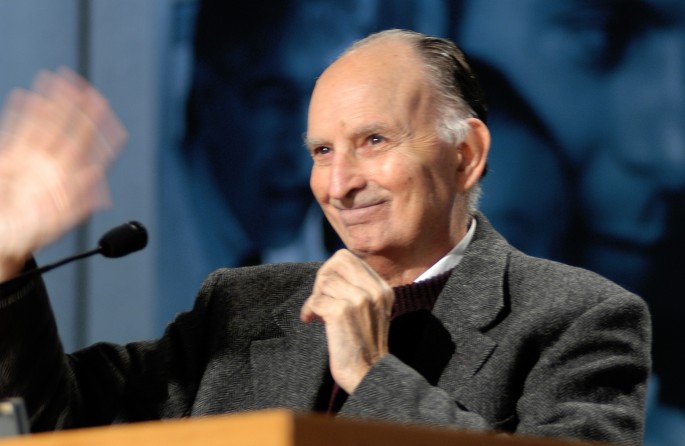
Pasquale Foresi (July, 5 1929 – June, 14 2015)
, heart and strength – even beyond their own strength – God asks for a second decision. The first time they chose Him, they understood that they should love God beyond all things. But if we could divide this choice into parts, we’d find that in reality it contained 30% of love for God, 30% of disgust for the mediocrity and emptiness we were living in, 15% of joy and enthusiasm for having given ourselves to such a beautiful and holy cause and, for some of us, perhaps 10% of remorse for our past sins. . . (…)
In fact it’s virtually impossible that the first time we chose God our love for him was not total and complete. But since perfection is only found in love, all of those secondary motives that had helped us at first because they were wrapped in our goodwill and enthusiasm to love God, little by little, the began to resurface and disturb us. It’s natural that they resurface, because already then they were like weeds that grow together with the grain as the Gospel of Matthew tells us. They’re small defects and attachments that aren’t authentic holiness, so they don’t build the Kingdom of God but disturb us and those around us. They may not even be venial sins, but nor are they authentic love. What should we do at that point? We should make a new decision for God. We should decide that love for God should become the only reason for our life – only love. (…)
At that point we have to take a qualitative leap. We have to decide to love God for God, not for what we experience, not for the fruits it brings. We decide to love God for His own sake, in response to His Love for each one of us. We decide to find our reason for living in this union with God, the reason for our everyday life.
When we reach this relationship with God, we become free human beings. Whatever happens, whatever calumny, difficulty, worry, bitterness – none of it alters our peace, because we’re rooted in God. And in God we find that unity, that joy, that serenity which only God’s love can give. (…)
One thing is certain: deciding for God is a decision that must always be renewed. Perhaps we’ll be called to a third choice and then others, because God’s life is always new, unfailing and filled with surprises.”
Pasquale Foresi, Source:
Pasquale Foresi, Colloqui, (Rome: Città Nuova Editrice, 2009).
0 Comments